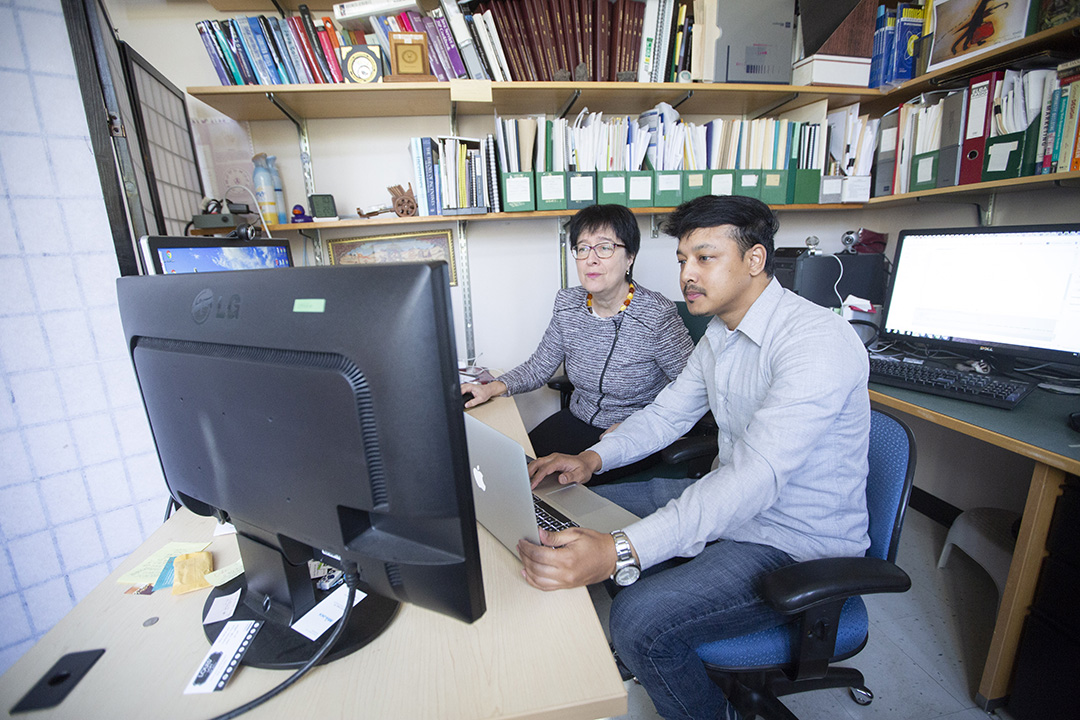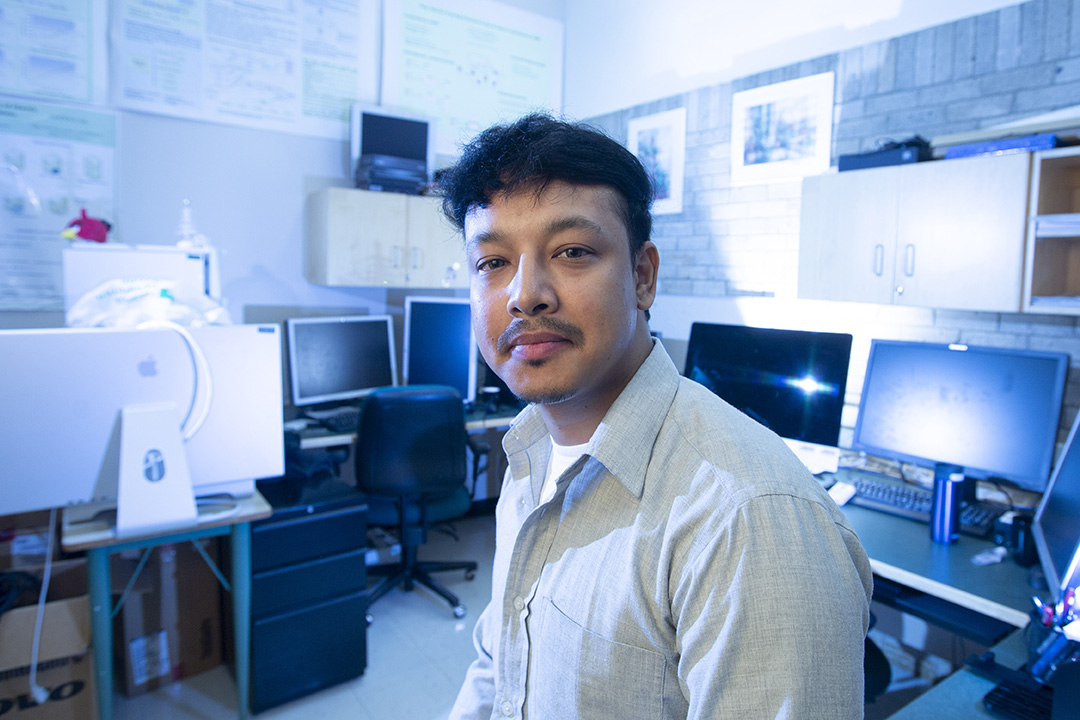
USask system to improve online privacy
New University of Saskatchewan computer science research that helps people control their data and online privacy has the potential to change data sharing on social media.
By Federica GiannelliProfessor Julita Vassileva and her PhD student Ajay Shrestha have developed a web application that helps users store their data permanently and set conditions for others to access the data.
The researchers’ goal is to make research collaboration across the globe easier and fairer for researchers, but the project could also apply to business and social media.
“Our system may be used for data sharing on social networks,” said Shrestha, who moved to USask from Nepal. “Users could retain control over their data, instead of giving up their personal information to companies such as Facebook or Google that use it to earn billions by selling personalized ads.”
The lack of user consent has fuelled the recent scandal that saw Cambridge Analytica gathering user data through a Facebook application. Cambridge Analytica allegedly used the data to tailor Facebook advertisements that may have influenced voting in the 2016 U.S. elections.
In a world where privacy is increasingly an issue, the new USask system may tip the balance by using blockchain. This technology creates a permanent, unchangeable record of transactions that tracks how data are shared and accessed. It is best known for exchanging the Bitcoin virtual currency.
“Our goal is to develop a platform that researchers can trust to share their data and that ensures they receive credit when the data are used,” said Vassileva. “If you upload your research data on websites such as ResearchGate, Mendeley or Academia.edu, you lose control over the data because it is hard to know how many people downloaded it, or whether you get credited for it.”

Using the new USask system, users would benefit from sharing their data by creating “smart contracts” that allow them to decide whether to get a monetary reward, recognition in the form of research citations, or both.
“Research citations are the currency of academia. The more you get, the more you are relevant in your field and you can advance your career,” said Shrestha.
“A system that ensures that you always get appropriate recognition can encourage researchers to share their findings more frequently, which means a faster advancement in research, and scientific and technological development.”
Shrestha’s testing of his blockchain-based web application has shown positive results so far in a private offline network. He has presented his findings at national and international conferences. He will fly to China in November to present updates.
Through a partnership with a company called ARTiFACTS, he and Vassileva will soon test the effectiveness of their new system and whether it is user-friendly.
In the meantime, Shrestha is working to incorporate the interactive “smart contracts” feature into his system. He will test it with data from USask researchers including scientists at the university’s Plant Phenotyping and Imaging Research Centre (P2IRC). The centre advances seed and plant breeding technologies and products at the USask Global Institute for Food Security.
The blockchain research project is funded by the federal Natural Sciences and Engineering Research Council (NSERC) and the Canada First Research Excellence Fund (CFREF) through P2IRC.

